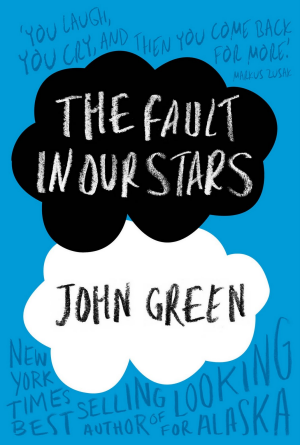By Adesuwa Okoyomon (Contributor) – Email
Print Edition: January 9, 2013
 Everything in me has decided that The Fault in Our Stars is John Green’s magnum opus. After reading Looking for Alaska, I have patiently waited for every new John Green novel. The writing in a John Green novel makes me fall in love with words all over again. I love the way they fit together and the way they change meanings. If you do not go beyond, you might just miss the beauty of it.
Everything in me has decided that The Fault in Our Stars is John Green’s magnum opus. After reading Looking for Alaska, I have patiently waited for every new John Green novel. The writing in a John Green novel makes me fall in love with words all over again. I love the way they fit together and the way they change meanings. If you do not go beyond, you might just miss the beauty of it.
The Fault in Our Stars captures every human emotion and delivers it through a 16-year-old cancer patient who so gravely wants “to not be a grenade, to not be a malevolent force in the lives of people” she loves. This book was captivating. I was wrapped in its hold, unmoving, giving it my solitary gaze. Despite the tragedy deep-seated in every line, it felt good to read a book about a teenager who was fox-trotting in death’s embrace. It was almost as if I was drowning in Green’s words, and I did not want to be saved.
The Fault in Our Stars does not merely throw you into the world of a cancer patient; it throws you into the world of a person. It felt real, it felt like life and that is what made it completely amazing. It had me blinking happiness from my eyelids and then pain, and happiness again. The main character, Hazel Grace and her boyfriend Augustus Waters, who is also a cancer patient; a victim of osteosarcoma, share a kind of deep love entrenched in maturity which makes it seem recondite and yet so beautiful.
Hazel Grace is entranced by a book called An Imperial Affliction, which ends in mid-sentence. She desperately wanted to communicate with the author, Peter Van Houten because of the questions that incessantly haunted her.
The title of the book was believed to have been influenced by a quote from Shakespeare’s Julius Caesar and this is established when the character Van Houten quotes: “‘the fault, dear Brutus, is not in our stars/ but in ourselves.’” And continues to say, “easy enough to say when you’re a Roman nobleman (or Shakespeare!) but there is no shortage of fault to be found amid our stars.”
Although John Green vividly makes known that “The world is not a wish-granting factory,” and “We are all victims of the universe’s need to make and unmake all,” he does not paint it in black and white for all to see, but masks it with colours of chaos and all that is life. The book is a work of fiction but it does well to teach that “pain demands to be felt,” though it only lasts as long as you allow it, and life will not hold back its vicissitudes or trials because “the universe wants to be noticed.” It upholds the joy of living in its simplest form—happiness can be found in the rarest of places if only one is willing to look.
In the world we live in we are all casualties of some kind, but rather than wait for life to happen, we should do well to write ourselves into our own stories instead of holding onto the bottle of ink and being too afraid to recognize the quill. Everyone has something they are most afraid of and fear of the unknown is much more disturbing than reality – for Hazel Grace it was letting people love her when she was so sure that she would not be around long enough to return their love.


